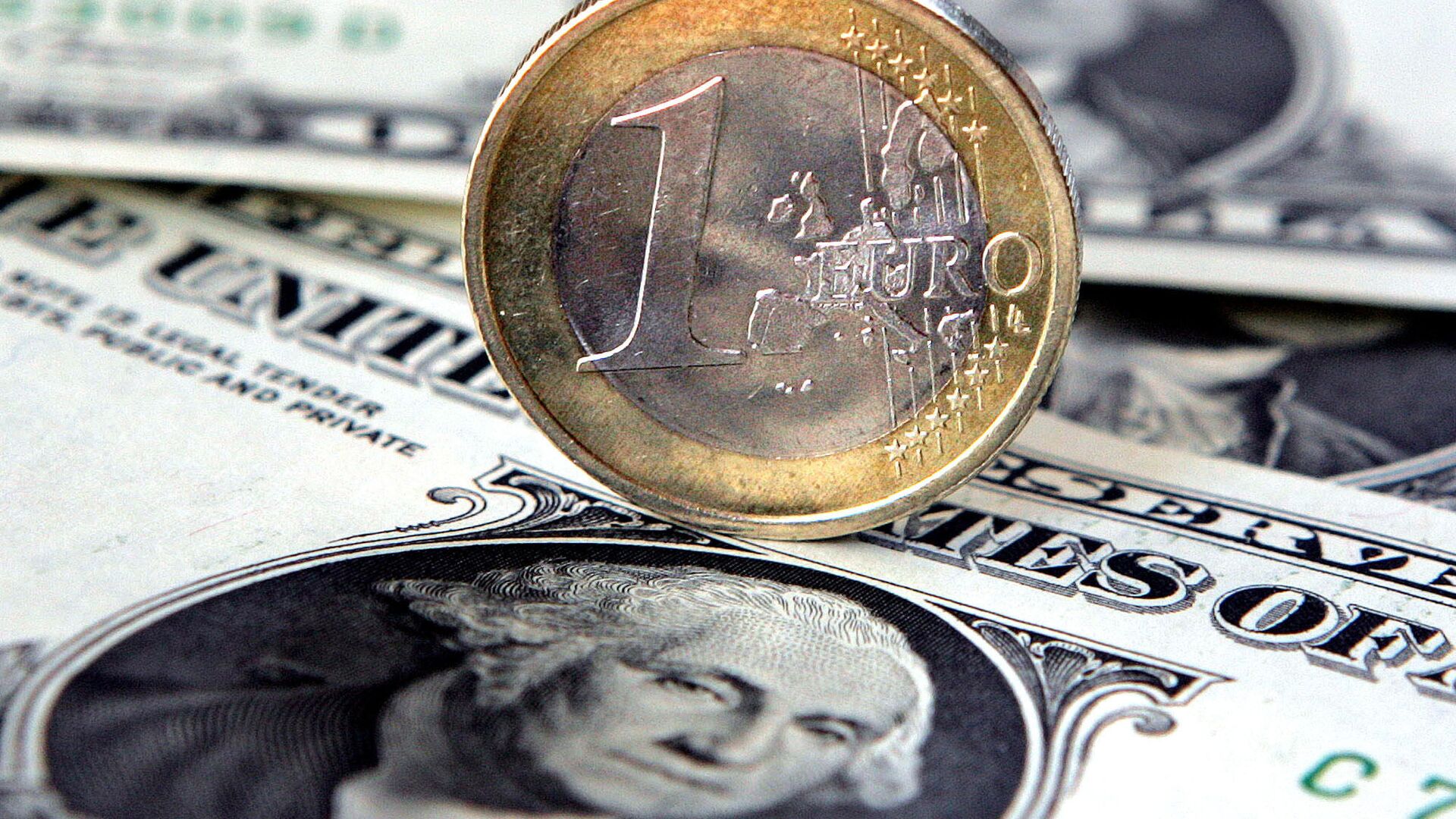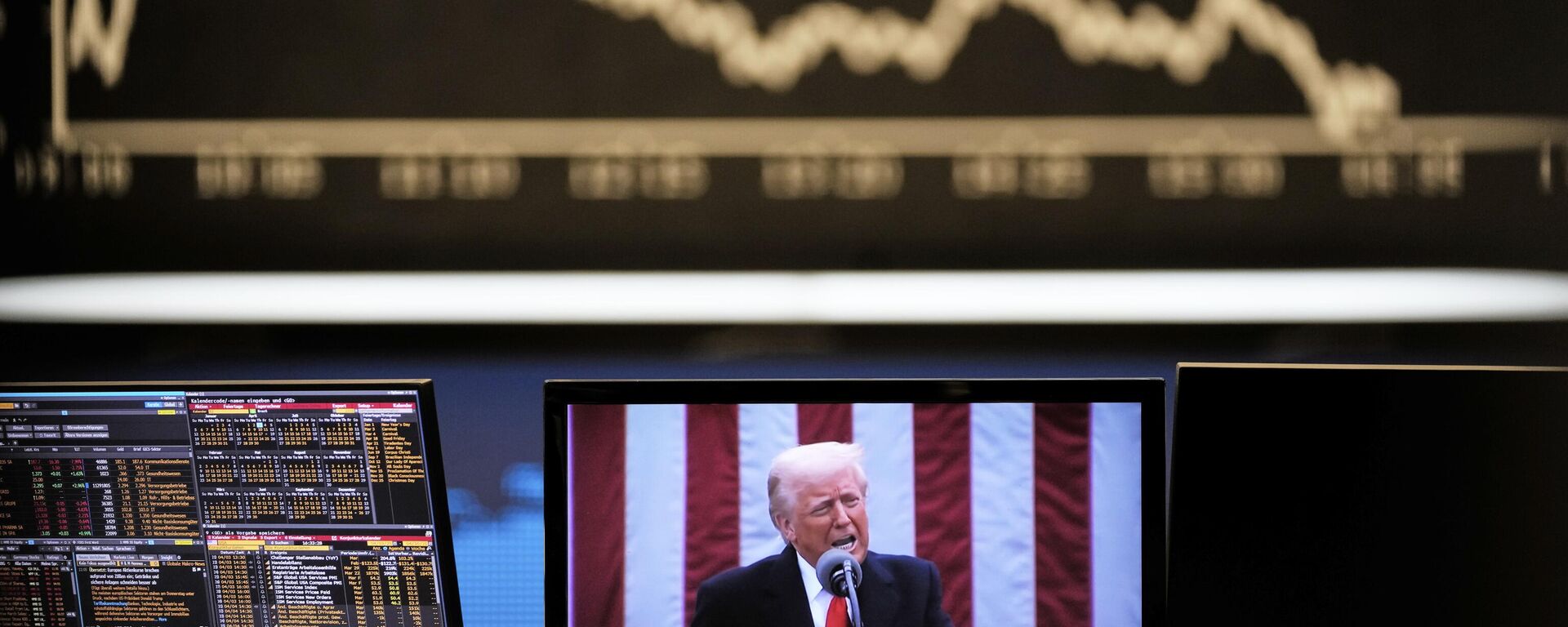https://sputnikglobe.com/20250501/five-reasons-why-a-strong-euro-is-an-economic-disaster-for-the-eu-1121962628.html
Five Reasons Why a Strong Euro is an Economic Disaster for the EU
Five Reasons Why a Strong Euro is an Economic Disaster for the EU
Sputnik International
The euro has jumped in value almost 10% against the dollar since January. But before cheering at the thought of cheaper imports of Skippy peanut butter and Jim Beam whiskey, here’s what EU residents should know.
2025-05-01T11:19+0000
2025-05-01T11:19+0000
2025-05-04T18:55+0000
economy
business
europe
jacques sapir
european union (eu)
euro
euro zone
currency
dollar
https://cdn1.img.sputnikglobe.com/img/07e4/08/09/1080111316_0:275:2000:1400_1920x0_80_0_0_9ee9ef043839cf84798db9ca09071a34.jpg
1. Stronger Euro = Weaker Exports“For any country (or zone in the case of the euro) that is a strong exporter,” a strong currency “contributes to slowing exports and increasing imports, to the detriment of domestic production,” explains Jacques Sapir, veteran economist and director of studies at the Paris-based School for Advanced Studies in the Social Sciences.2. Monetary Union TrapUnlike ordinary nations, which can depreciate their currencies at will to restore exports’ appeal, eurozone members are trapped by the monetary union, which offers “quite limited” room to maneuver for big producers or tourism-based earners benefiting from depreciation vs everyone else.3. Another Hit to Eurozone Economy in Rough ShapeThe euro’s growing strength is bad news for a bloc already:4. Tariff-like Effects5. Tariff Wars Add to Uncertainty“Major economic players abhor uncertainty…As long as these negotiations last, no one knows what the tariff levels will be and therefore how attractive the American market will be, whether for production or investment,” the economist says.
https://sputnikglobe.com/20250417/us-will-pull-eu-to-pieces-before-letting-it-partner-up-with-china-1121884324.html
https://sputnikglobe.com/20250417/trade-war-with-us-may-cost-germany-a-whopping-330bln-1121880776.html
Sputnik International
feedback@sputniknews.com
+74956456601
MIA „Rossiya Segodnya“
2025
News
en_EN
Sputnik International
feedback@sputniknews.com
+74956456601
MIA „Rossiya Segodnya“
Sputnik International
feedback@sputniknews.com
+74956456601
MIA „Rossiya Segodnya“
is strong euro good or bad, why is strong euro bad
is strong euro good or bad, why is strong euro bad
Five Reasons Why a Strong Euro is an Economic Disaster for the EU
11:19 GMT 01.05.2025 (Updated: 18:55 GMT 04.05.2025) The euro has jumped in value almost 10% against the dollar since January. But before cheering at the thought of cheaper imports of Skippy peanut butter and Jim Beam whiskey, here’s what EU residents should know.
1. Stronger Euro = Weaker Exports
“For any country (or zone in the case of the euro) that is a strong exporter,” a strong currency “contributes to slowing exports and increasing imports, to the detriment of domestic production,” explains Jacques Sapir, veteran economist and director of studies at the Paris-based School for Advanced Studies in the Social Sciences.
Unlike ordinary nations, which can depreciate their currencies at will to restore exports’ appeal, eurozone members are trapped by the monetary union, which offers “quite limited” room to maneuver for big producers or tourism-based earners benefiting from depreciation vs everyone else.
3. Another Hit to Eurozone Economy in Rough Shape
The euro’s growing strength is bad news for a bloc already:
facing zero growth and recession for 3 years running
cut off from the source of its export competitiveness: cheap Russian energy
facing brutal trade competition from the US and China.
“With the dollar depreciating by around 10% since mid-January, it is as if the US has imposed 10% customs duties on European products while subsidizing their exports to the eurozone by 10%,” Saphir says.
5. Tariff Wars Add to Uncertainty
“Major economic players abhor uncertainty…As long as these negotiations last, no one knows what the tariff levels will be and therefore how attractive the American market will be, whether for production or investment,” the economist says.




